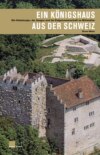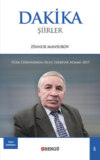Kitabı oku: «Free Russia», sayfa 6
CHAPTER XI.
THE LOCAL SAINTS
This exclusion of women from the Holy Isle was the doing of Savatie, first of the Local Saints.
Savatie, the original anchoret of Solovetsk, was one day praying near a lake, when he heard a cry, as of a woman in pain. His comrade said it must have been a dream: for no woman was living nearer to their "desert" than the Karel coast. The saint went forth again to pray; but once again his devotions were disturbed by cries and sobs. Going round by the banks of the lake to see, he found a young woman lying on the ground, with her flesh all bruised, her back all bleeding from recent blows. She was a fisherman's wife. On being asked who had done her this harm, she said that two young men, with bright faces and dressed in white raiment, came to her hut while her husband was away, and telling her she must go after him, as the land belonged to God, and no woman must sleep on it a single night, they threw her on the ground, struck her with rods, and made her cry with pain.
When she could walk, the poor creature got into her boat, and St. Savatie saw her no more. The fisherman came to fish, but his wife remained at home; and in this way woman was driven by angels from the Holy Isle. No monk, no layman, ever doubts this story. How can he? Here, to this day, stands the log house in which Savatie dwelt, and twenty paces from it lies the mossy bank on which he knelt. Across the water there, beside yon clump of pines, rose the fisherman's shed. The sharp ascent on which the church and lighthouse glisten, is still called Striking Hill.
This St. Savatie was a monk from Novgorod living at the old convent of Belozersk, in which he served the office of tonsurer – shaver of heads; but longing for a life of greater solitude than his convent gave him, he persuaded one of his brethren, named Valaam, to go up with him into the deserts near the Polar Sea. Boyars from his country-side were then going up into the north; and why should holy men not bear as much for Christ as boyars and traders bore for pelf? On praying all night in their chapels, these boyars and traders ran to their archbishop with the cry: "Oh, give us leave, Vladika, to go forth, man and horse, and win new lands for St. Sophia." Settling in Kem, in Suma, in Soroka, and at other points, these men were adding a region larger than the mother-country to the territories ruled by Novgorod the Great. The story of these boyars stirred up Savatie to follow in their wake, and labor in the desolate land which they were opening up.
Toiling through the virgin woods and sandy plains, Savatie and his companion Valaam arrived on the Vieg (in 1429), and found a pious monk, named German, who had also come from the south country. Looking towards the east, these monks perceived, in the watery waste, a group of isles; and trimming a light skiff, Savatie and German crossed the sea. Landing on the largest isle, they made a "desert" on the shore of a lakelet, lying at the foot of a hill on which birch and pine trees grew to the top. Their lake was sheltered, the knoll was high; and from the summit they could see the sprinkle of isles and their embracing waves, as far as Orloff Cape to the south, the downs of Kem on the west.
Savatie brought with him a picture of the Virgin, not then known to possess miraculous virtues, which he hung up in a chapel built of logs. Near to this chapel he made for himself and his companion a hut of reeds and sticks, in which they lived in peace and prayer until the rigor of the climate wore them out. After six years spent in solitude, German sailed back to the Vieg; and Savatie, finding himself alone on the rock, in that desert from which he had banished woman and love, became afraid of dying without a priest being at hand to shrive and put him beneath the grass. Getting into his skiff, he also crossed to Soroka, where he obtained from Father Nathaniel, a prior who chanced to visit that town, the bread and cup; and then, his work on earth being done, he passed away to his eternal rest.
Laying him in the sands at Soroka, Nathaniel raised a chapel of pine logs, dedicated to the Holy Trinity, above his grave; and there Savatie would have lain forever, his name unknown, his saintly rank unrecognized on earth, had he not fallen in the path of a man of stronger and more enduring spirit.
One of the bold adventurers from Novgorod, named Gabriel, settling with his wife Barbara in the new village of Tolvui, on the banks of Lake Onega, had a son, whom he called Zosima, and devoted to God. Zosima, a monk while he was yet a child, took his vows in the monastery of Palaostrofsk, near his father's home; and on reaching the age when he could act for himself, he divided his inheritance among his kin, and taking up his pilgrim's staff departed for the north. At Suma he fell in with German, who told him of the life he had lived six years in his desert on the lonely rock. Zosima, taken by this tale, persuaded German to show him the spot where he and Savatie had dwelt so long. They crossed the sea. A lucky breeze bore them past Zaet, into a small and quiet bay; and when they leaped on shore – then strewn with boulders, and green with forest trees – they found themselves not only on the salt sea, but close to a deep and lustrous lake, the waters of which were sweet to the taste, and swarming with fish, the necessary food of monks.
Kneeling on the sand in prayer, Zosima was nerved by a miraculous vision to found a religious colony in that lonely island, even as Marfa's people were founding secular colonies at Suma, Soroka, and Kem. He saw, as in a dream, a bright and comely monastic pile, with swelling domes and lofty turrets, standing on the brink of that lovely sheet of water – henceforth to be known as the Holy Lake. Starting from his knees, he told his companion, German, of the vision he had seen; described the walls, the Sacred Gates, the clusters of spires and domes; in a word, the convent in the splendor of its present form. They cut down a pine, and framed it into a cross, which they planted in the ground; in token that this island in the frozen deep belonged to God and to His saints. This act of consecrating the isle took place (in 1436) a year after St. Savatie died.
The monks erected cabins near this cross; in which cabins they dwelt, about a mile apart, so as not to crowd upon each other in their desert home. The sites are marked by chapels erected to perpetuate their fame.
The tale of these young hermits living in their desert on the Frozen Sea being noised abroad in cloisters, monks from all sides of the north country came to join them; bringing strong thews and eager souls to aid in their task of raising up in that wild region, and among those savage tribes, a temple of the living God. In time a church grew round and above the original cross; and as none of the hermits were in holy orders, they sent a messenger to Yon, then archbishop of Novgorod, asking him for a blessing on their work, and praying him to send them a prior who could celebrate mass. Yon gave them his benediction and his servant Pavel. Pavel travelled into the north, and consecrated their humble church; but the climate was too hard for him to bear. A second prior came out in Feodosie; a third prior in Yon; both of whom staid some time in the Frozen Sea, and only went back to Novgorod when they were broken in health and advanced in years.
When Yon, the third prior, left them, the fathers held a meeting to consider their future course. Sixteen years had now passed by since Zosima and German crossed the sea from Suma; ten or twelve years since Pavel consecrated their humble church. In less than a dozen years three priors had come and gone; and every one saw that monks who had grown old in the Volkhoff district could not live in the Frozen Sea. The brethren asked their archbishop to give them a prior from their own more hardy ranks; and all these brethren joined in the prayer that Zosima, leader of the colony from first to last, would take this office of prior upon himself. His poor opinion of himself gave place to a sense of the public good.
Marching on foot to Novgorod, a journey of more than a thousand miles, through a country without a road, Zosima went up to the great city, where he was received by the Vladika, and was ordained a priest. From the mayor and chief boyars he obtained a more definite cession of the isles than Prior Yon had been able to secure; and thus he came back to his convent as pope and prior, with the fame of a holy man, to whom nothing might be denied. Getting leave to remove the bones of Savatie from Soroka to Solovetsk, he took up his body from the earth, and finding it pure and fresh, he laid the incorruptible relics in the crypt of his infant church.
More and more monks arrived in the lonely isles; and pilgrims from far and near began to cross the sea; for the tomb of Savatie was said to work miraculous cures. But as the monastery grew in fame and wealth, the troubles of the world came down upon the prior and his monks. The men of Kem began to see that this bank in the Frozen Sea was a valuable prize; and the lords of Anzersk and Moksalma quarrelled with the monks; disputing their right over the foreshores, and pressing them with claims about the waifs and strays. At length, in his green old age, Zosima girded up his loins, and taking his pastoral staff in hand, set out for Novgorod, in the hope of seeing Marfa in person, and of settling, once and forever, the question of his claim to these rocks by asking for the lordship of Kem itself to be vested in the prior of Solovetsk!
On a column of the great cathedral of St. Sophia, in the Kremlin of Novgorod, a series of frescoes tells the story of this visit of St. Zosima to the parent state. One picture takes the eye with a singular and abiding force – a banquet in a noble hall, in which the table is surrounded by headless guests.
Passing through the city from house to house, Zosima was received in nearly all with honor, as became his years and fame; but not in all. The boyars of Kem had friends in the city; and the Marfa's ear had been filled with tales against his monkish guile and monkish greed. From her door he was driven with scorn; and her house was that in which he was most desirous of being received in peace. Knowing that he could do nothing without her aid, Zosima set himself, by patient waiting on events, to overcome her fury against the cause which he was there to plead. At length, her feeling being subdued, she granted him a new charter (dated 1470, and still preserved at Solovetsk), confirming his right over all the lands, lakes, forests and fore-shores of the Holy Isles, together with the lordship of Kem, made over, then and for all coming time, to the service of God.
Before Zosima left the great city, Marfa invited him to her table, where he was to take his leave, not only of herself, but of the chief boyars. As the prior sat at meat, the company noticed that his face was sad, that his eyes were fixed on space, that his soul seemed moved by some unseen cause. "What is the matter?" cried the guests. He would not speak; and when they pressed around him closely, they perceived that burning drops were rolling down his cheeks. More eagerly than ever, they demanded to know what he saw in his fixed and terrible stare. "I see," said the monk, "six boyars at a feast, all seated at a table without their heads!"
That dinner-party is the subject painted on the column in St. Sophia; and the legend says that every man who sat with him that day at Marfa's table had his head sliced off by Ivan the Third, when the proud and ancient republic fell before the destroyer of the Golden Horde.
Strengthened by his new titles, Zosima came back to Solovetsk a prince; and the pile which he governed took the style, which it has ever since borne, of
The Convent that Endureth Forever
Zosima ruled his convent as prior for twenty-six years; and after a hermitage of forty-two years on his lowly rock he passed away into his rest.
On his dying couch he told his disciples that he was about to quit them in the flesh, but only in the flesh. He promised to be with them in the spirit; watching in the same cells, and kneeling at the same graves. He bade them thank God daily for the promise that their convent should endure forever; safe as a rock, and sacred as a shrine – even though it stood in the centre of a raging sea – in the reach of pitiless foes. And then he passed away – the second of these local saints – leaving, as his legacy to mankind, the temporal and spiritual germs of this great sanctuary in the Frozen Sea.
About that time the third monk also died – German, the companion of Savatie, in his cabin near Striking Hill; afterwards of Zosima, in his hut by the Holy Lake. He died at Novgorod, to which city he had again returned from the north. His bones were begged from the monks in whose grounds they lay, and being carried to Solovetsk, were laid in a shrine near the graves of his ancient and more famous friends.
Such was the origin of the convent over which the Archimandrite Feofan now rules and reigns.
CHAPTER XII.
A MONASTIC HOUSEHOLD
My letter from his Sanctity of Archangel having been sent in to Feofan, Archimandrite of Solovetsk, an invitation to the palace arrives in due form by the mouth of Father Hilarion; who may be described to the lay world as the Archimandrite's minister for secular affairs. Father Hilarion is attended by Father John, who seems to have taken upon himself the office of my companion-in-chief. Attiring myself in befitting robes, we pass through the Sacred Gates, and after pausing for a moment to glance at the models of Peter's yacht and frigate, there laid up, and to notice some ancient frescoes which line the passage, we mount a flight of steps, and find ourselves standing at the Archimandrite's door.
The chief of this monastery is a great man; one of the greatest men in the Russian Church; higher, as some folks say, than many a man who calls himself bishop, and even metropolite. Since the days of Peter the Great, the monastery of Solovetsk has been an independent spiritual power; owning no master in the Church, and answering to no authority save that of the Holy Governing Synod.
Like an archbishop, the Archimandrite of Solovetsk has the right to bless his congregation by waving three tapers in his right hand over two tapers in his left. He lives in a palace; he receives four thousand rubles a year in money; and the cost of his house, his table, his vestments, and his boats, comes out of the monastic fund. He has a garden, a vineyard, and a country-house; and his choice of a cell in the sunniest nooks of these sacred isles. His personal rank is that of a prince, with a dignity which no secular rank can give; since he reigns alike over the bodies and the souls of men.
Dressed in his cowl and frock, on which hangs a splendid sapphire cross, Feofan, a small, slight man – with the ascetic face, the womanlike curls, and vanishing figure, which you note in nearly all these celibate priests – advances to meet us near the door, and after blessing Father John, and shaking me by the hand, he leads us to an inner room, hung with choice prints, and warmed by carpets and rugs, where he places me on the sofa by his side, while the two fathers stand apart, in respectful attitude, as though they were in church.
"You are not English?" he inquires, in a tender tone, just marked by a touch – a very light touch – of humor.
"Yes, English, certainly."
A turn of his eye, made slowly, and by design, directs my attention to his finger, which reclines on an object hardly to have been expected on an Archimandrite's table; an iron shell! The Tower-mark proves that it must have been fired from an English gun. A faint smile flits across the Archimandrite's face. There it stands; an English shell, unburst; the stopper drawn; and two plugs near it on a tray. That missile, it is clear, must have fallen into some soft bed of sand or peat.
"You are the first pilgrim who ever came from your country to Solovetsk," says Feofan, smiling. "One man came before you in a steamship; he was an engineer – one Anderson; you know him, maybe? No! He was a good man – he minded his engines well; but he could not live on fish and quass – he asked for beef and beer; and when we told him we had none to give him, he went away. No other English ever came."
He passes on to talk of the Holy Sepulchre and the Russian convent near the Jaffa Gate.
"You are welcome to Solovetsk," he says at parting; "see what you wish to see, go where you wish to go, and come to me when you like." Nothing could be sweeter than his voice, nothing softer than his smile, as he spake these words; and seeing the twinkle in his eye, as we stand near the English shell, I also smile and add: "On the mantel-piece of my writing-room in London there lies just such another shell, a trifle thinner in the girth."
"Yes?" he asks, a little curious – for a monk.
"My shell has the Russian mark; it was fired from Sebastopol, and picked up by a friend of my own in his trench before the Russian lines."
Feofan laughs, so far as an Archimandrite ever laughs – in the eyes and about the mouth. From this hour his house and household are at my disposal – his boat, his carriage, and his driver; every thing is done to make my residence in the convent pleasant; and every night my host is good enough to receive from his officers a full report of what I have seen and what I have said during the day!
Three hundred monks of all classes reside on the Holy Isle. The chief is, of course, the Archimandrite; next to him come forty monks, who are also popes; then come seventy or eighty monks who wear the hood and have taken the final vows; after these orders come the postulants, acolytes, singers, servants. Lodgers, scholars, and hired laymen fall into a second class.
These brethren are of all ages and conditions, from the pretty child who serves at table to the decrepit father who can not leave his cell; from the monk of noble birth and ample fortune to the brother who landed on these islands as a tramp. They wear the same habit, eat at the same board, listen to the same chants, and live the same life. Each brother has his separate cell, in which he sleeps and works; but every one, unless infirm with years and sickness, must appear in chapel at the hour of prayer, in refectory at the hour of meals. Hood and gown, made of the same serge, and cut in the same style, must be worn by all, excepting only by the priest who reads the service for the day. They suffer their beards and locks to grow, and spend much time in combing and smoothing these abundant growths. A flowing beard is the pride of monks and men; but while the beard is coming, a young fellow combs and parts his hair with all the coquetry of a girl. When looking at a bevy of boys in a church, their heads uncovered, their locks, shed down the centre, hanging about their shoulders, you might easily mistake them for singers of the sweeter sex.
Not many of these fathers could be truly described as ordinary men. A few are pure fanatics, who fear to lose their souls; still more are men with a natural calling for religious life. A goodly list are prisoners of the church, sent up from convents in the south and west. These last are the salt and wine of Solovetsk; the men who keep it sweet and make it strong. The offense for which they suffer is too much zeal: a learned and critical spirit, a disposition to find fault, a craving for reform, a wish to fall back on the purity of ancient times. For such disorders of the mind an ordinary monk has no compassion; and a journey to the desert of Solovetsk is thought to be for such diseases the only cure.
An Archimandrite, appointed to his office by the Holy Governing Synod, must be a man of learning and ability, able to instruct his brethren and to rule his house. He is expected to burn like a shining light, to fast very often, to pray very much, to rise very early, and to live like a saint. The brethren keep an eye upon their chief. If he is hard with himself he may be hard with them; but woe to him if he is weak in the flesh – if he wears fine linen about his throat, if savory dishes steam upon his board, if the riumka – that tiny glass out of which whisky is drunk – goes often to his lips. In every monk about his chamber he finds a critic; in nearly every one he fears a spy. It is not easy to satisfy them all. One father wishes for a sterner life, another thinks the discipline too strict. By every post some letters of complaint go out, and every member of the Holy Governing Synod may be told in secret of the Archimandrite's sins. If he fails to win his critics, the appeals against his rule increase in number and in boldness, till at length inquiry is begun, bad feeling is provoked on every side, and the offending chieftain is promoted – for the sake of peace – to some other place.
The Archimandrite of Solovetsk has the assistance of three great officers, who may be called his manager, his treasurer, and his custodian; officers who must be not only monks but popes.
Father Hilarion is the manager, with the duty of conducting the more worldly business of his convent. It is he who lodges the guests when they arrive, who looks after the ships and docks, who employs the laborers and conducts the farms, who sends out smacks to fish, who deals with skippers, who buys and sells stores, who keeps the workshops in order, and who regulates the coming and going of the pilgrim's boat. It is he who keeps church and tomb in repair, who sees that the fathers are warmly clad, who takes charge of the buildings and furniture, who superintends the kitchen, who keeps an eye on corridor and yard, who orders books and prints, who manages the painting-room and the photographer's office, who inspects the cells, and provides that every one has a bench, a press, a looking-glass, and a comb.
Father Michael is the treasurer, with the duty of receiving all gifts and paying all accounts. The income of the monastery is derived from two sources: from the sale of what is made in the monkish workshops, and from the gifts of pilgrims and of those who send offerings by pilgrims. No one can learn how much they receive from either source; for the receiving-boxes are placed in corners, and the contributor is encouraged to conceal from his left hand what his right hand drops in. Forty thousand rubles a year has been mentioned to me as the sum received in gifts; but five thousand pounds must be far below the amount of money passing in a year under Father Michael's eye. It is probably eight or ten. The charities of these monks are bounded only by the power of the people to come near them; and in the harder class of winters the peasants and fishermen push through the floes of ice from beyond Orloff Cape and Kandalax Bay in search of a basket of convent bread. These folks are always fed when they arrive, are always supplied with loaves when they depart. The schools, too, cost no little; for the monks receive all boys who come to them – sent as they hold, by the Father whom they serve.
Father Alexander is the custodian, with the duty of keeping the monastic wardrobe, together with the ritual books, the charters and papers, the jewels and the altar plate. His office is in the sacristy, with the treasures of which he is perfectly familiar, from the letter, in Cyrilian character and Slavonic phrase, by which Marfa of Novgorod gave this islet to the monks, down to that pious reliquary in which are kept some fragments of English shells; kept with as much veneration as bones of saints and chips from the genuine cross!










